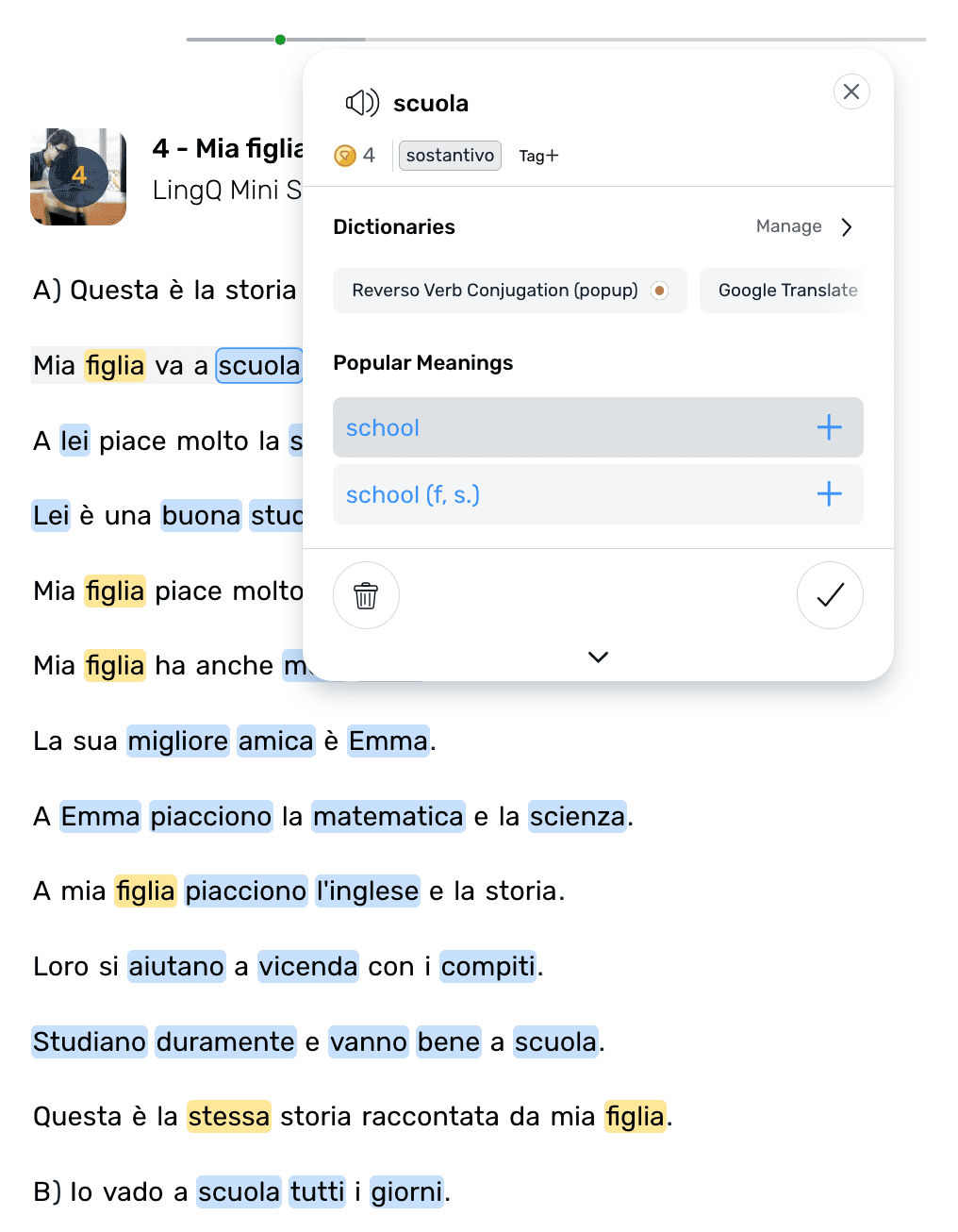Tricks to Learning the Colours in Italian
If there is one flag everyone can recognize in the world, apart from the American flag, it is the Italian flag. Italian flags are very commonly seen worldwide due to the abundance of Italian restaurants that can be found around the world.
Although the Italian flag is well known around the world, it does not mean that Italians are as patriotic as Americans. As a matter of fact, it is quite rare to see an Italian flag around Italy. The green (verde), white (bianco), and red (rosso) flag can mostly be seen at monumental government buildings.
Colours of the Italian Flag

The original pizza (margherita) actually was created to represent the tricolour flag. The basil represents the green, the tomato sauce represents the colour red, while the cheese represents the white part of the flag.
There are many myths behind what each colour of the Italian flag truly represents. However, there are two most popular myths. The first states that green symbolizes hope, white represents faith and red means charity. On the other hand, another myth states that green symbolizes the green landscape that can be found throughout Italy, the white represents the tips of snow of the Alps, and red is to commemorate the bloodshed and lives lost that led to the independence of Italy as a single unified nation.
What are the Most Essential Colours in Italian?
Let’s take a look at how to say the most essential colours in Italian:
Arancione – Orange
Giallo – Yellow
Blu – Blue
Rosso – Red
Verde – Green
Nero – Black
Marrone – Brown
Rosa – Pink
Porpora / Viola – Purple
Bianco – White
The Grammar of Italian Colours
Italian grammar is probably one of the most confusing there is in any language. As a matter of fact, even Italians have a hard time learning it and some Italians even struggle to use their grammar correctly.
Since colours are adjectives, they must agree to the gender of the noun it is describing. However, that is the easy part. It gets tricky when you use singular and plural verbs. Below you can find examples on how to use each colour in both singular and plural.
Orange – Arancione
Singolare: Amo il colore arancione di queste carote.
Singular: I love the orange colour of these carrots.
Plurale: Quelle scarpe arancioni sono veramente strane.
Plural: Those orange shoes are very strange.
Yellow – Giallo
Singolare: Quel motorino giallo che vedi è di Luca.
Singular: The yellow vespa that you see is Luca’s.
Plurale: Le Ferrari gialle sono le mie preferite!
Plural: The yellow Ferraris are my favourite.
Blue – Blu
Blue is an exception! It does not change if the noun is plural or singular.
Singolare: Il mio colore preferito è sicuramente il blu mi ricorda il cielo!
Singular: My favorite color is probably blue it reminds me of the sky.
Red – Rosso
Singolare: Il toro è sensibile al colore rosso.
Singular: The bull is sensitive to the color red color.
Plurale: Le rose rosse sono le mie preferite.
Plural: Red roses are my favourite.
Green – Verde
Singolare: Il verde è il colore della speranza.
Singular: Green is the colour of hope.
Plurale: Tutte e due le squadre hanno le maglie verdi.
Plural: Both teams have green shirts.
Black – Nero
Singolare: Il nero sta bene sempre con tutto.
Singular: Black always matches with everything.
Plurale: Preferisco sempre indossare abiti neri.
Plural: I always prefer to wear black clothes.
Learn the Colours in Italian on LingQ
LingQ is the best way to learn Italian online. Not only does it contain hundreds of professionally created lessons (that include audio), but you can import your own content into LingQ too. That means, you can import your favourite Italian YouTube videos, audiobooks, podcasts, and so on to help you study.

Other benefits of LingQ include:
– Easily look up new vocabulary with a single tap.
– Save vocabulary and review them using LingQ’s SRS.
– Take your lessons on the go using LingQ’s mobile app (available for iOS and Android).
Brown – Marrone
Singolare: Il marrone è un colore invernale.
Singular: Brown is a winter colour.
Plurale: Quei funghi sono tutti marroni.
Plural: Those mushrooms are all brown.
Pink – Rosa
The colour pink is another exception that does not change if the noun is plural or singular. Singolare: Il maialino rosa è veramente simpatico.
Singular: The pink pig is very nice.

Purple – Porpora/Viola
Another exception to this rule is also purple. Singolare: Perché non ti fai i capelli viola ?
Singular: Why don’t you dye your hair purple?
White – Bianco
Singolare: I gelatai sono sempre vestiti di bianco.
Singular: The ice cream men are always dressed in all white.
Plurale: Quei muri sono tutti bianchi.
Plural: Those walls are all white.
